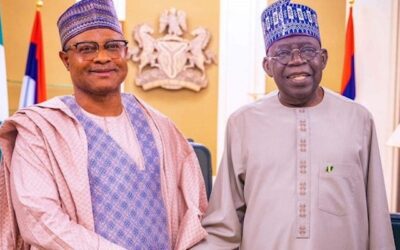Fuel May Sell For N340 Per Litre In 2022 – GMD NNPC

Malam Mele Kyari, Group Managing Director, Nigerian National Petroleum Company (NNPC), has hinted that a litre of fuel may sell between N320 and N340 in 2022.
Kyari revealed this at the launch of the World Bank Nigeria Development Update (NDU) November 2021 edition, entitled, ‘Time for Business Unusual’, in Abuja on Tuesday.
Kyari said fuel subsidy removal would definitely be achieved in 2022.
He said that the law provides that by the end of February 2022, the nation should be out of the subsidy regime.
“There will be no provision for it legally in our system, but I am also sure you will appreciate that government has a bigger social responsibility to cater for the ordinary and therefore engage in a process that will ensure that we exit in the most subtle and easy manner,” he said.
On the hike in prices of cooking gas, he said that it was a demand and supply issue as there was a global crunch on supply of gas and many countries were now threatened by lack of supply in December.
He added that the product was not under any subsidy regime and therefore irrespective of where it was produced, would follow the global trend.
Kyari, however, assured that the company was working on increasing local production to meet the needs of consumers.
Meanwhile, Zainab Ahmed, Minister of Finance, Budget and National Planning, said the Federal Government will remove fuel subsidies by 2022 and replace them with N5000- a-month transportation grant to the poorest Nigerians.
Ahmed disclosed this at the presentation of the World Bank Nigeria Development Update (NDU).
Ahmed explained that the grant would go to about 30 million to 40 million Nigerians that make up the poorest population of the country, adding that the final number of beneficiaries would depend on the resources available after the removal of the fuel subsidy.
She also explained that the move was set for June 2022, nonetheless the Federal Government hopes to implement it before June in line with the Petroleum Industry Act (PIA).
“The subsidies regime in the (oil) sector remains unsustainable and economically disingenuous. Ahead of the target date of mid-2022 for the complete elimination of fuel subsidies, we are working with our partners on measures to cushion potential negative impact of the removal of the subsidies on the most vulnerable at the bottom 40% of the population.
“One of such measures would be to institute a monthly transport subsidy in the form of cash transfer of N5,000 to between 30 million and 40 million deserving Nigerians,” Ahmed said.
The World Bank in the development update had said the poorest 40% in Nigeria consume less than 3% of the total PMS in the country, highlighting that the rich were benefiting more from the subsidies.
“We are very optimistic that the recent developments in the oil sector, such as the Petroleum Industry Act (PIA) 2021, hopefully, the full reactivation of the four public refineries in the country, and the completion and coming on stream of the three private refineries under construction in 2022, would significantly boost contribution from the sector to our economic growth efforts.
“I agree with the report that with the expansion of social protection policies during the pandemic, the government has an opportunity to phase out subsidies such as the PMS subsidy while utilising cash transfers to safeguard the welfare of poor and middle-class households”, she noted.


